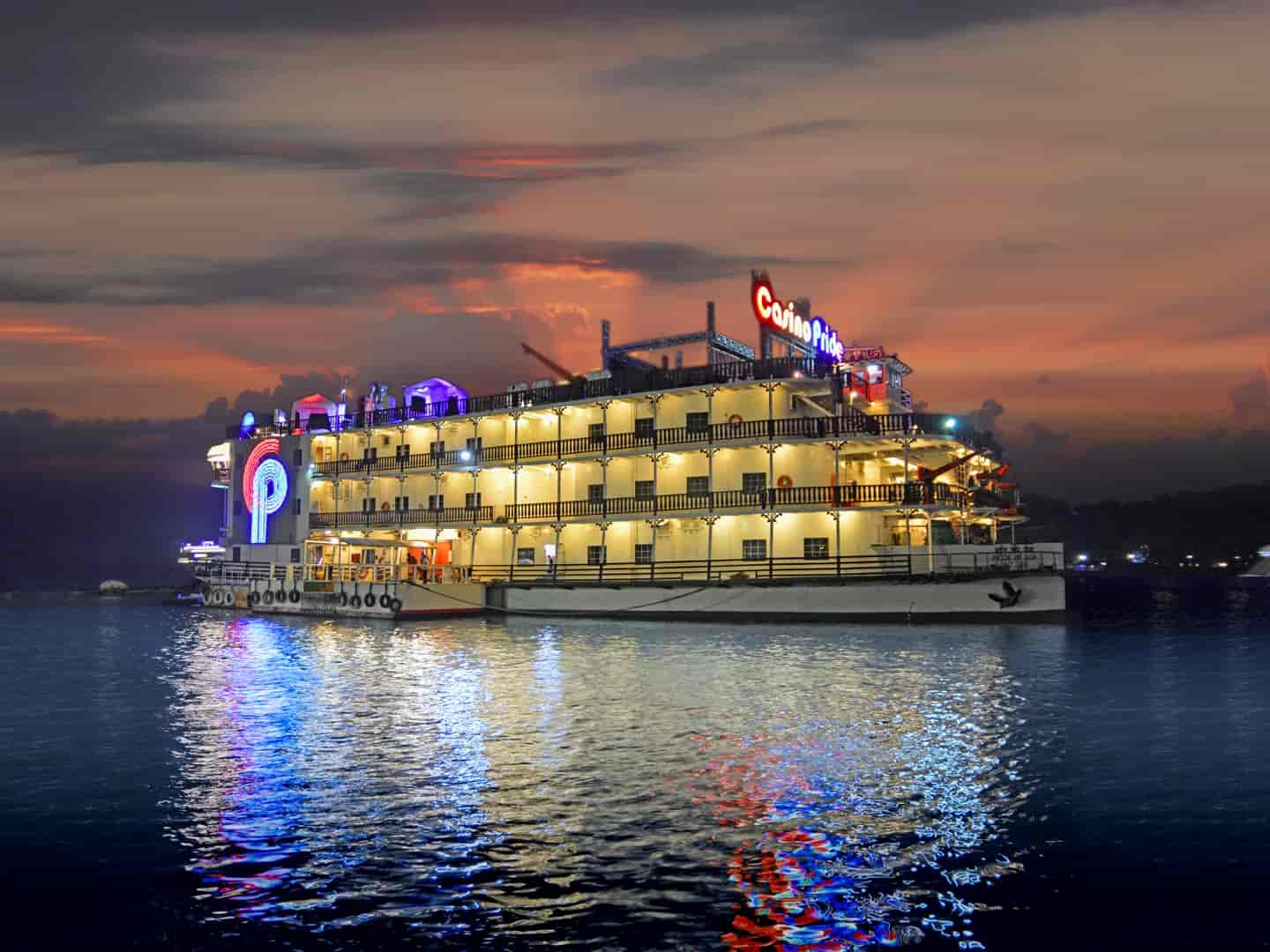Casino Pride 2 Review
Compared to new ships being launched today, Carnival Pride is small in size, carrying just 2,124 passengers. (Most new ships carry at least 4,000.) While it has been in service since 2002, Carnival Pride entered dry dock for a significant refurbishment in 2014 where it was upgraded with classic Carnival restaurants and activities that have come to define the line’s easygoing, and casual. Pride Carpets is the leading online Casino, Hotel & Hospitality Carpet manufacturer, as well as your consulting partner. Created to help you maximize your time frames with our one of a kind Quick Ship Carpet program & unique custom carpets as well as provide real value for your budgets. Casino pride, Goa Reviews: Check 2 reviews of Casino pride, Goa, real travellers reviews of Casino pride with travel tips, feedbacks, experience and genuine reviews of Casino pride, Goa. Ixigo is a travel search & planning app that aggregates quality travel information, trustworthy traveller reviews and compares lowest prices to help you plan. In this winner-takes-all event, Casino Elixir will reign victorious. One has never witnessed a marriage as powerful as when the vitality of Creed's Aventus is combined with the oriental splendor of Baccarat Rouge 540. As if one of these fragrances on its own weren't enough, the combination of the two is lethal.
For the Slovenian director Mateja Koležnik, Verdi’s final masterpiece Falstaff is a mixture of comedy and “fine realization (reality?)” in her own words. At the Bayerische Staatsoper, she stages the entire opera in a casino, and reduces everything to money. Falstaff, a gambler down on his luck, decides to seduce two wealthy housewives for their husbands’ money. Ford may be rich, but he acts like a gangster. His wife, Alice, and her friends Meg and Mistress Quickly, as well as Alice’s daughter Nannetta, dress in furs and sequins, flaunting their wealth. There is little differentiation of characters, young and old, rich and not so rich, in the production; unless one is familiar with the opera and its plot, it could be confusing and off-putting.
The set consists of pillars and sliding floors, with 16 doors that open and close as characters weave through the relatively narrow front stage. The director emphasizes the slapstick in the first two acts, but Verdi’s superb, economical score contains all the slapsticks, comedy, frenzy, pathos, pride, vanity, arrogance and longing of young love for the ears to savor. The busy stage action and frequent sliding doors in Acts 1 and 2 did not enhance but rather distracted from the fine musical performances. The silliness reached its peak in Falstaff and Alice’s seduction scene; Alice, scantily dressed in her dressing gown, teases Falstaff on a ladder against her tall closet as she plays with her sandals. Who would invite your admirer to your bedroom closet for your first encounter?
Matters improve in Act 3, as there is relatively little busy action. Dressed in glitzy and gaudy nightclub attire, the singers could at least sing with the music, not against it. The director devised a brilliant and heart-breaking ending, no doubt improvised given the recent Covid restrictions. As Falstaff is once again duped by the masquerade, the singers all exit at the back, and in their place appears a small screen. Now the cast and orchestra appear in their everyday wear in small windows à la Zoom, as they sing the last few minutes of the opera, culminating in the “fugue”, the ensemble “Tutto nel mondo é burla” (Everything in the world is a joke). As the recorded and piped in music of this glorious finale played, one by one, dancers, singers, stagehands and other backstage crew and finally the conductor Michele Mariotti himself appear on stage, standing in silence to the last “La risata final” (the final laughter). But no one is laughing. The screen is lifted and the camera spins around to show the orchestra also standing. The final arresting image of all the participants – front- and backstage – still in their face masks, turned to the empty auditorium, will be forever etched in my memory as a sad and defiant protest of artists and those of us who desperately miss the live theater and musical experience.
 520
520 238
238Wolfgang Koch made a great role debut as Falstaff, his voice full of nuance, color and sheen as he negotiated the fiendish demands of parlando, soliloquy, and legato. Ailyn Pérez’s attractive and rich soprano could plunge to a gorgeous chest voice as needed; she succeeded in depicting Alice as a strong and smart woman, the focus of the opera. Other principals all sang and acted well, with Boris Pinkhasovich’s Ford memorable for his powerful and sonorous, if not particularly Italianate, baritone. Mariotti led the orchestra with a fierce commitment and deep understanding of Verdi’s most complex and profound work. Busy stage action could not undermine the superb playing of the orchestra which described the action and emotions of the characters in a clear, incisive manner. Verdi instructs us not to take life too seriously as all is mockery and laughter. What a luxury it will be when life can be so carefree and flamboyant once again.
This performance was reviewed from the Bayerische Staatsoper TV live video stream
Watch onlineWatch onlineSee full listingThe Bayerische Staatsoper revives once again a beloved production, with a first rate cast.
Casino Pride 2 Review Cnet
“Esultate!” Otello a musical triumph in Munich